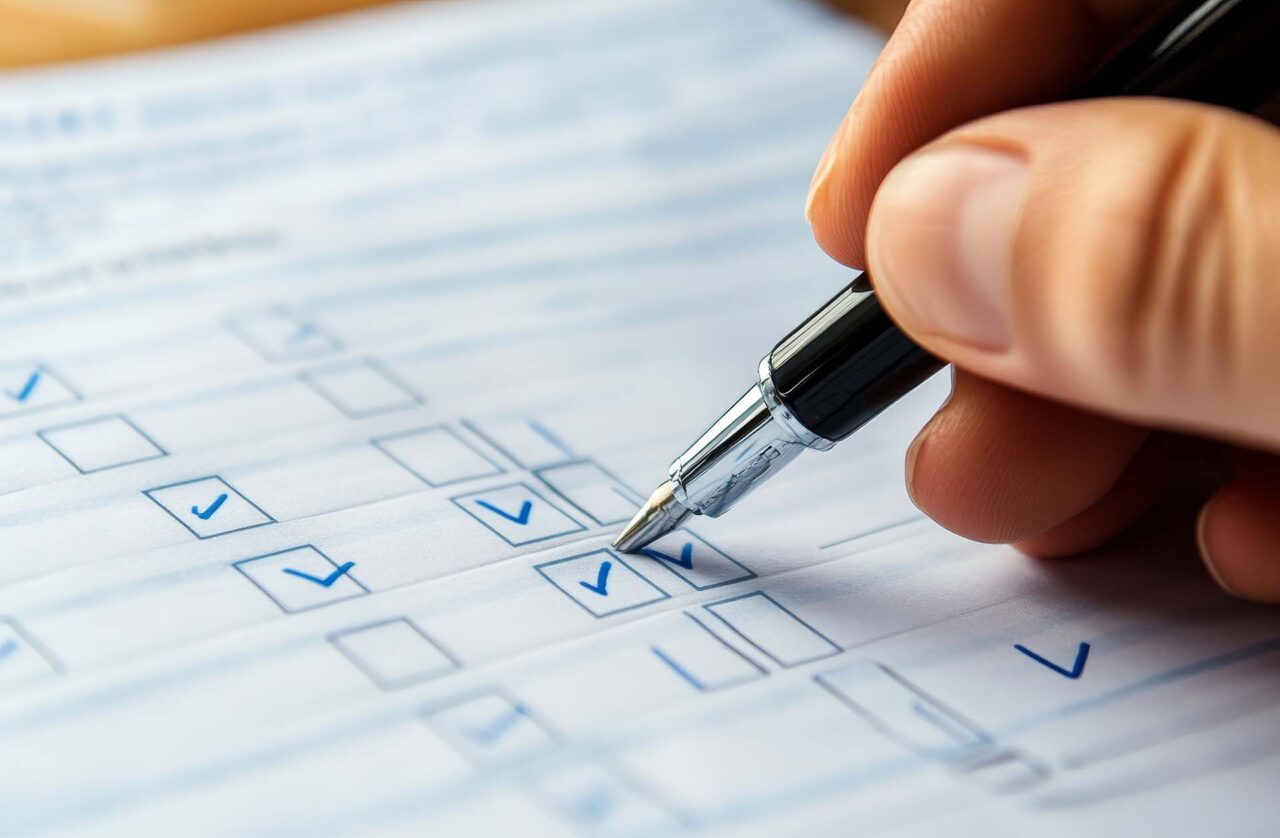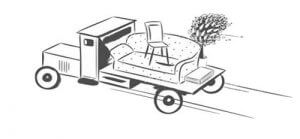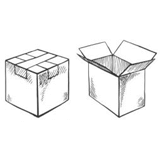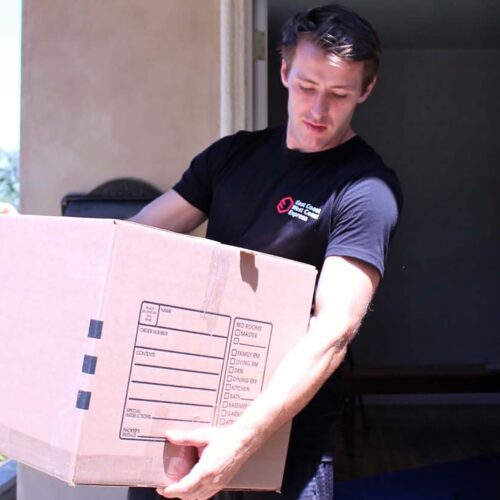

Moving, especially from a rental property, can feel overwhelming, but with proper planning, it doesn’t have to be. From reviewing your lease agreement to organizing packing and cleaning, there are crucial steps to ensure a smooth transition. Knowing the things to do when moving out of a rental property can save time, reduce stress, and help you get your security deposit back. So here’s how you should tackle this life adventure.
When Preparing for the Move-Out, There are Some Key Steps to Take Early On
Preparing for a move-out starts with thoughtful planning and organization. The earlier you tackle essential tasks, the smoother the process will be. From understanding your lease obligations to creating a checklist that keeps you on track, these steps ensure you leave your rental property in great shape while setting the stage for a hassle-free move.
Did you know that the number of renters has reached its highest level since 1965? So, there are people in a similar situation as you, looking for a way to move out of the rented property without losing their minds.
Review Your Lease Agreement
Your lease agreement is your go-to guide for understanding the terms of your rental. Check the notice period to ensure you’re giving proper advance notice to your landlord, typically 30 or 60 days. Pay attention to clauses about cleaning or repair requirements—some leases specify professional carpet cleaning or repainting. By knowing these details upfront, you can avoid surprises and make sure you’re meeting expectations.
Notify Your Landlord
One of the first steps when moving out of a rental property is notifying your landlord. Write a formal move-out notice that includes your intended move-out date, ensuring it aligns with the notice period outlined in your lease. This shows professionalism and keeps the process transparent. Want to leave on good terms? Be courteous and proactive in addressing any concerns—they’ll appreciate your effort, which could even make getting your security deposit back a little easier.
Create a Long Distance Moving Checklist
A moving checklist is your best friend during the process. Start by listing tasks in order of priority and assigning deadlines to keep everything manageable. Include important to-dos like booking a moving company, decluttering, and notifying utility providers. Having a clear plan keeps you organized and reduces last-minute stress, leaving you more time to focus on the exciting aspects of your move.
 Creating the checklist will ensure you are on top of all of your tasks
Creating the checklist will ensure you are on top of all of your tasks
Cleaning and Repairs Will Ensure You are Leaving the Property in Top Condition
Leaving your rental property spotless and in excellent condition is key to securing your security deposit and leaving on good terms. Deep cleaning of every room, handling necessary repairs, and documenting the property’s condition are essential steps. Not only does this demonstrate responsibility, but it also ensures a smooth move-out process, making the final walkthrough with your landlord a breeze.
Deep Clean the Space
Start with a room-by-room approach to tackle cleaning efficiently. Scrub kitchens and bathrooms thoroughly, paying extra attention to appliances, sinks, and grout. Don’t forget overlooked areas like baseboards, ceiling fans, and window tracks. A spotless space speaks volumes about your care as a tenant.
Address Repairs and Maintenance
Repairing small damages like nail holes or scuff marks is often expected. Patch up walls, replace burnt-out light bulbs, and ensure all fixtures are in working order. For more complex repairs, consider hiring a professional to ensure the job is done right, saving you from potential deductions.
Document the Condition
Before handing over the keys, document the property’s condition with detailed photos and videos. Capture every room, highlighting the cleaned and repaired areas. This visual proof can be invaluable if disputes arise during the final walkthrough or security deposit return process.
 Clean before you leave the rental place
Clean before you leave the rental place
Don’t Forget to Manage Utilities and Address Change
Efficiently managing your utilities and address updates is a crucial part of the move-out process. Proper planning ensures you avoid unnecessary charges, maintain uninterrupted service at your new location, and stay connected with important correspondence. These simple yet essential steps can save you time and hassle during your transition.
Schedule Utility Shut-Offs and Transfers
Avoid paying for services after you’ve moved by scheduling utility shut-offs for the day after your move-out. This includes electricity, water, gas, and internet. Simultaneously, coordinate utility setups at your new location to ensure everything is ready upon your arrival. A little planning goes a long way in avoiding gaps or overlapping bills.
Update Your Address
Start by setting up address forwarding to redirect mail to your new home. Then, inform key contacts, such as your bank, insurance provider, employer, and subscription services, of your new address. Staying ahead of this task helps prevent missed bills, important documents, or deliveries.
 Make sure you change the address when relocating to avoid losing mail
Make sure you change the address when relocating to avoid losing mail
Declutter and Make Packing and the Move Easier
Packing doesn’t have to be overwhelming if you take a strategic approach. Decluttering before you pack can reduce the load, save time, and even make a little extra money. Pair that with smart packing techniques and the help of professional cross-country movers, and you’re on your way to a stress-free move-out experience.
Declutter Before Packing
Before putting anything in boxes, decide what’s worth taking to your new home. Sort items into categories – keep, donate, sell, or toss. Hosting a yard sale or listing items online can turn your unwanted belongings into extra cash while lightening your load. This step not only simplifies packing but also ensures your new space stays organized.
Auto Transport
East Coast West Coast Express ships all kinds of vehicles, regardless of their shape, size, price, or weight. From scooters to trucks, if you need it shipped, we can do it.
Read MoreSmart Packing Strategies
Pack efficiently by labeling boxes by room and noting their priority for unpacking. For fragile or valuable items, invest in proper packing materials like bubble wrap and sturdy boxes. These small efforts prevent damage and make unpacking easier, saving you time and potential frustration later.
Hire Professional East Coast Movers
Professional cross-country movers can take much of the stress out of the process, especially for larger items or long-distance moves. They bring expertise, efficiency, and the right equipment to ensure your belongings arrive safely. Research and choose a reliable long-distance moving company that specializes in rental property relocations for a seamless experience.
For example, East Coast West Coast Movers offer exceptional long-distance moving services. With our help, you won’t have to worry about a thing. We offer professional packing assistance, as well as storage units for your stuff. Also, if you own a vehicle, it will be safely transported across the country. Our auto-shipping services will accommodate your needs, and our team will ensure that the car is safely brought to a new location.
 East Coast West Coast Movers are a one stop shop for your relocation needs
East Coast West Coast Movers are a one stop shop for your relocation needs
The Final Walkthrough Will Ensure a Stress-Free Goodbye
The final walkthrough is your last step before saying goodbye to your rental property. It’s your chance to demonstrate that the space is in great condition and to address any final concerns with your landlord. With proper preparation, this step can be straightforward and stress-free.
Coordinate With Your Landlord
Work with your landlord to schedule the walkthrough at a mutually convenient time. This ensures they have enough time to review the property before the next tenant moves in. Double-check that you’ve met all your obligations, such as cleaning, repairs, and removing all personal belongings, to avoid any last-minute surprises.
Collect Your Security Deposit
Familiarize yourself with your rights regarding security deposits. Landlords are generally required to provide an itemized list of deductions if they retain any portion of the deposit. If disputes arise, having photo or video evidence of the property’s condition can help resolve them. Clear communication and preparedness are key to ensuring you receive the full amount you’re entitled to.
 Make sure you know your rights and obligations when it comes to security deposit
Make sure you know your rights and obligations when it comes to security deposit
Ready to Move? Contact East Coast West Coast Movers Today!
Moving doesn’t have to be stressful when you have the right team by your side. East Coast West Coast Movers offers professional cross-country moving services designed to make your transition seamless and worry-free. From expert packing to safe transportation, we handle the heavy lifting so you can focus on settling into your new home.
Getting started is simple—reach out for a free moving estimate today. Let us show you how easy moving can be. Make your move stress-free—get in touch with us now!











